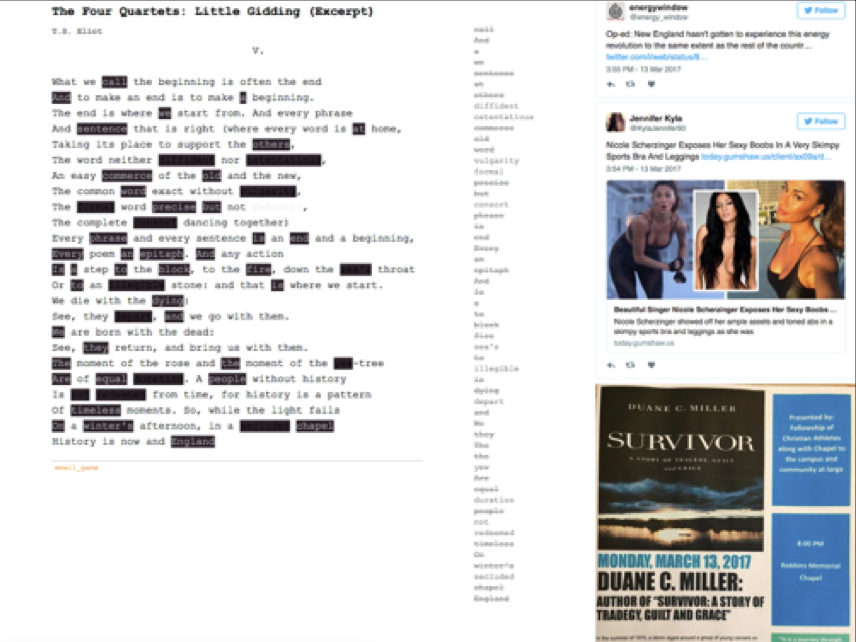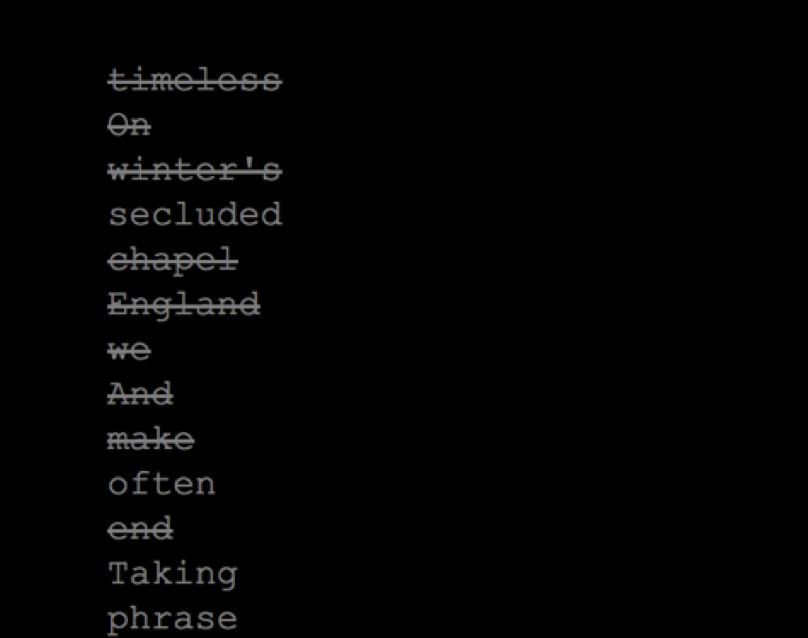Twitwrit
Custom software, Twitter API (2015)
If a poem is found, word by word, in a the context of other writing, is it really a poem? This project is an exploration of the temporal relation of random words in our most public of forums, Twitter. This is an implementation of the infinite monkey theorem, which questions, amongst other things, whether art can be produced by accident. Rather than a hypothetical room of monkeys, this project uses the random thoughts of millions of people tapping on their phones, in brief bursts of self-expression.
Twitwrit is a project prototype that uses existing poetry, primarily excerpts from The Four Quartets. T.S. Eliot effectively predicted Twitter, by name and by function, in his poem Burnt Norton in 1936:
Distracted from distraction by distraction
Filled with fancies and empty of meaning
Tumid apathy with no concentration
Men and bits of paper, whirled by the cold wind
...
Not here the darkness, in this twittering world.
Flow
This was a web-application that began when I fed a text into the software. At this point, sequential Twitter API searches are kicked off and the poem is reconstructed word-by-word in real time, leaving visible reference to the context of each found word (its containing tweet):

In searching for a poem temporally, we run up against language that is no longer used in common speech, or, if so, occurs infrequently. This led to an ongoing collection of lost words, which changed over time as blanks were subsquently (or never) filled in.

Audience Experience
My hope for the project is that as viewers, readers, and participants we are brought squarely into the present moment, as any bracing encounter with poetry can do.
Next Steps
I had not forseen the impact of Twitter rate-limiting on the project. Because any authorized Twitter account can only implement so many searches in a given time period, even using the Streaming API, for the prototype I cycled keys from a pool of shared accounts. However, even with this optimization, the reading was by necessity slowed down in order to not get blocked by Twitter.
The next phase of the project would take into consideration questions of speed in reading, how/if to involve users (do people sign up to use the project) and longer-running poems.
I will also be exploring whether this is best implemented as a physical installation or a web or native application.
Other Video Resources
- My talk, Cloud-sourcing T.S. Eliot, which I gave at the Erlang Factory SF 2017.
- 37 seconds of Little Gidding
- 3:26 seconds of reconstructing ‘A Blessing’ by James Wright